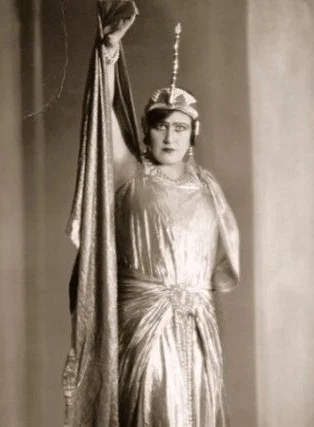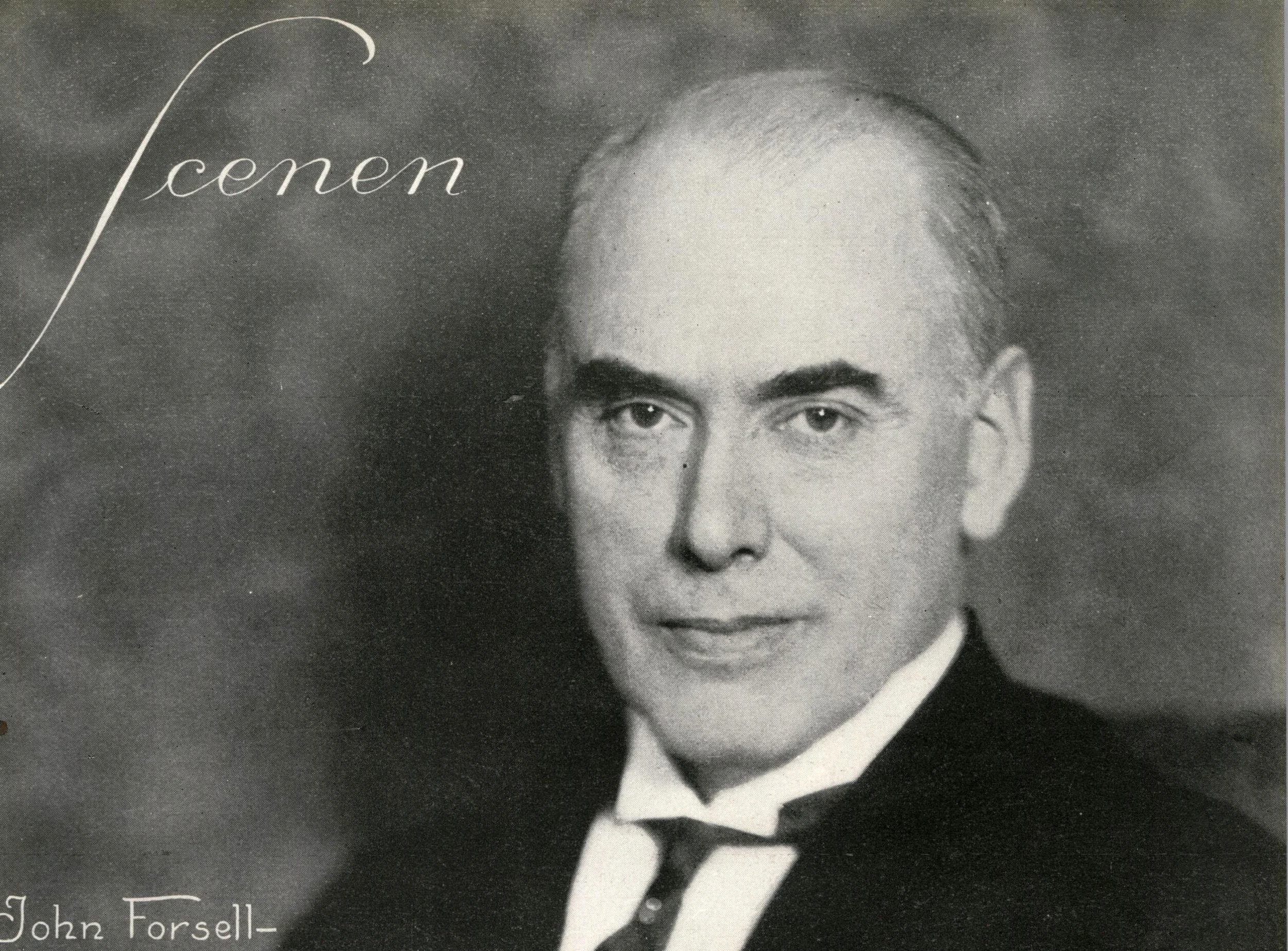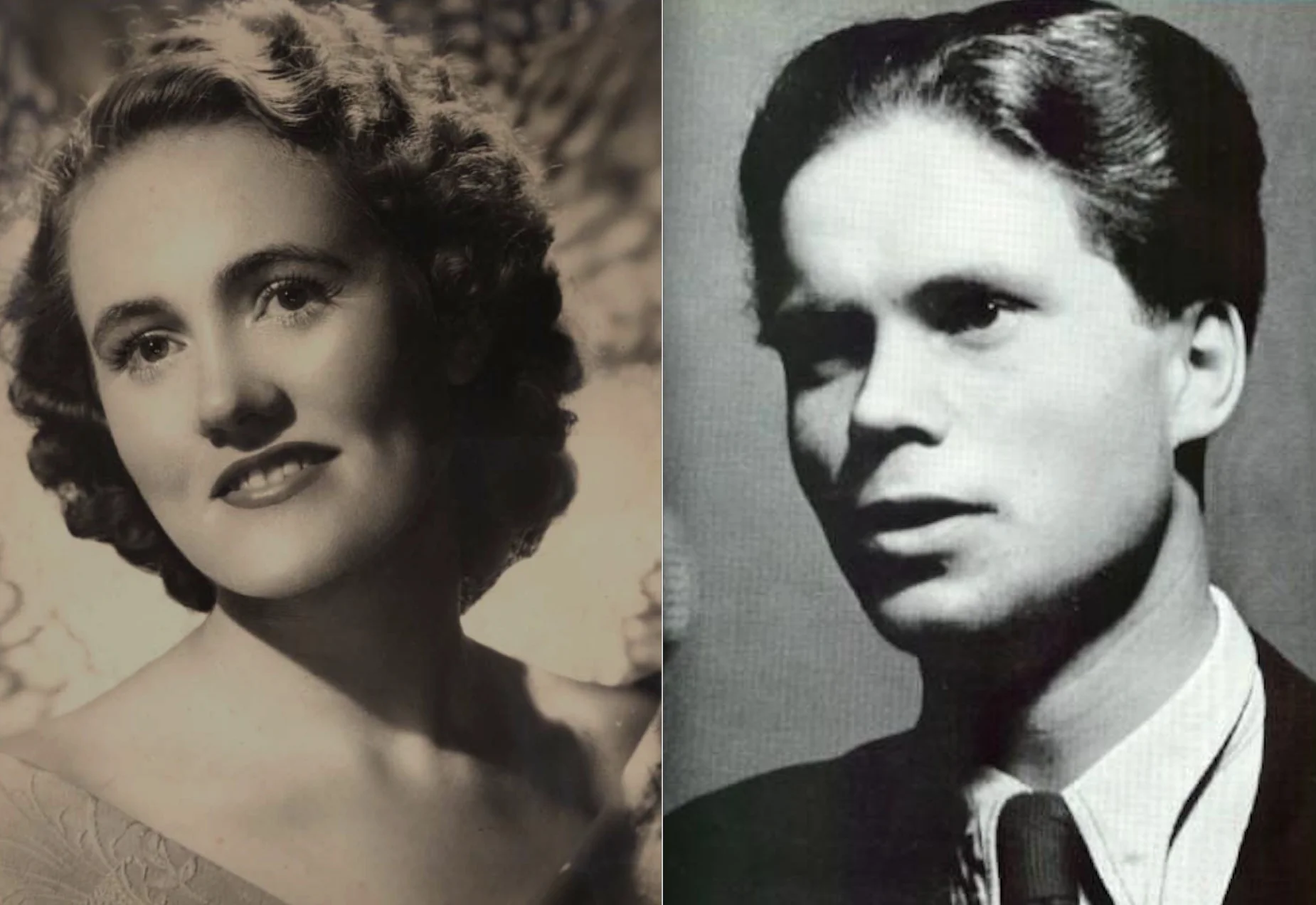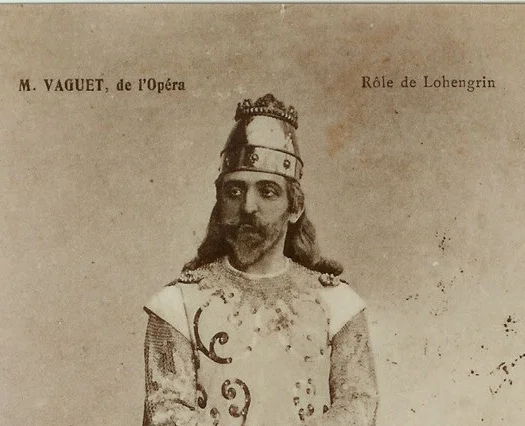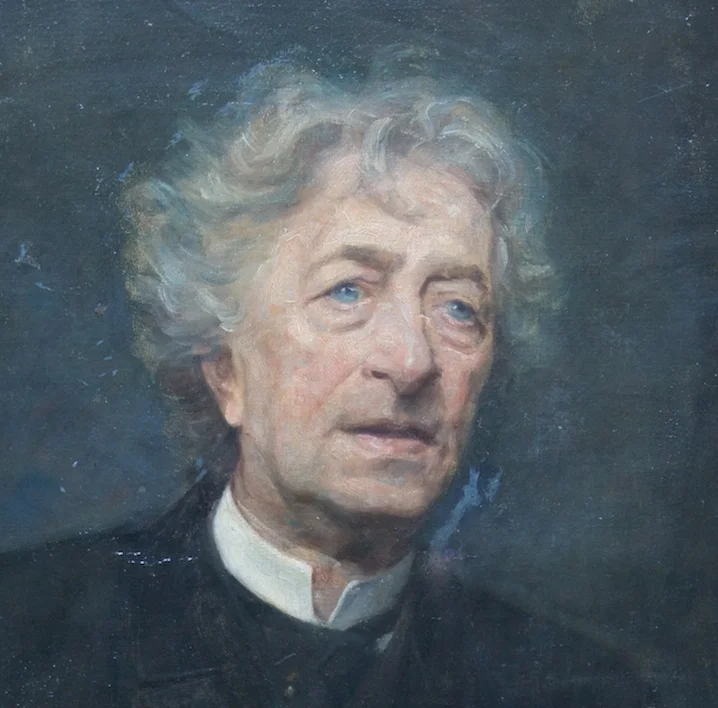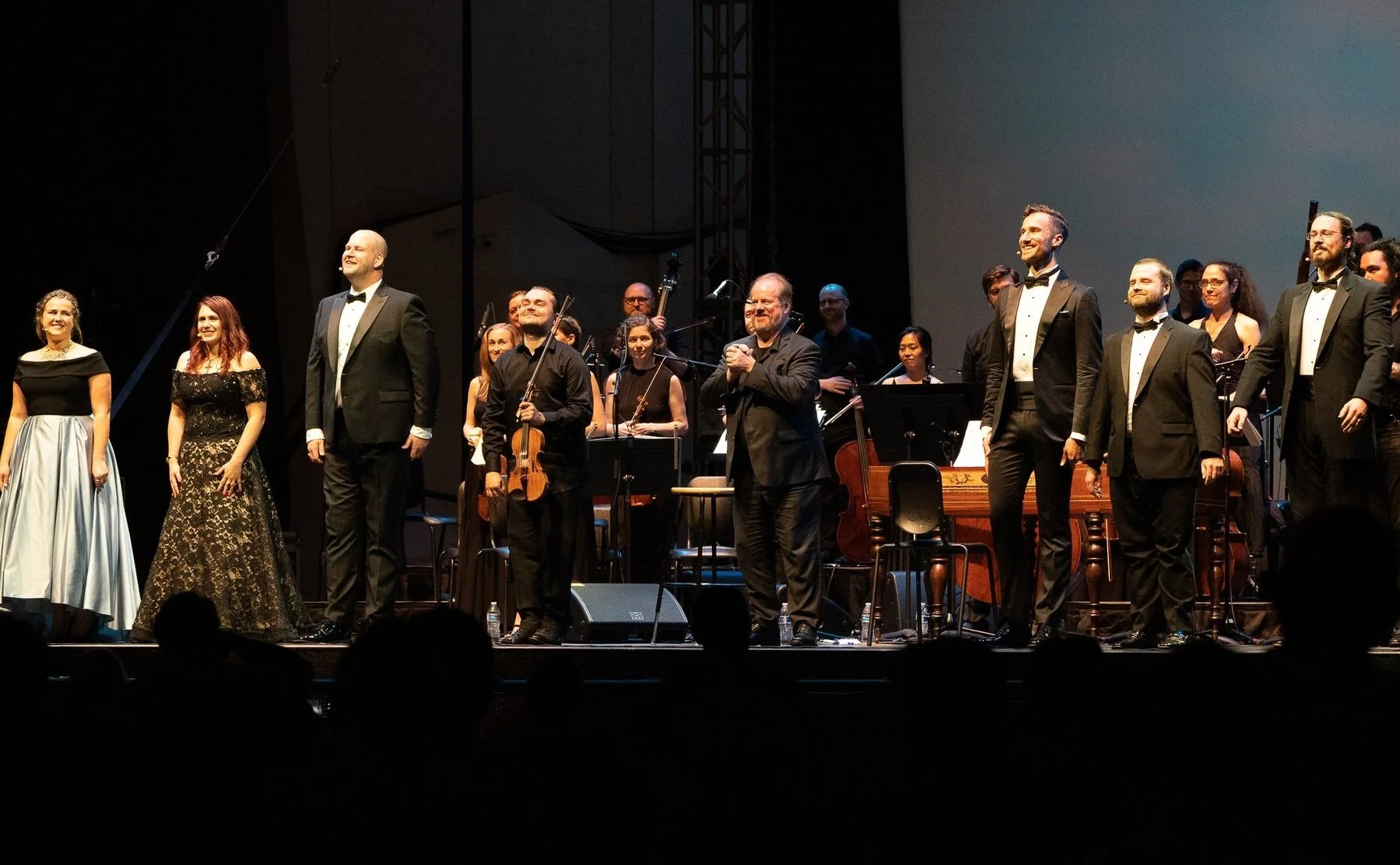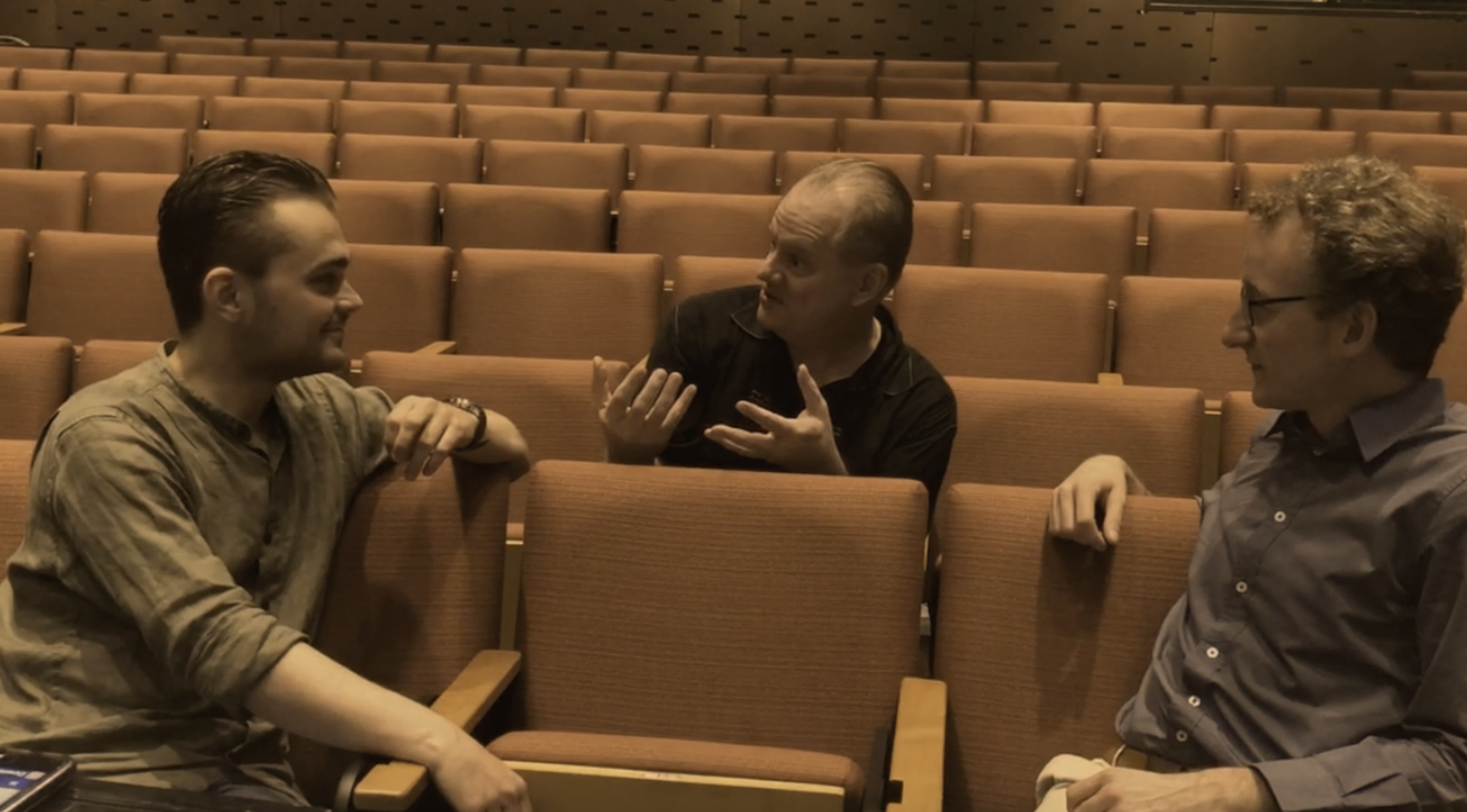Die beiden Grenadiere
Georg Henschel in 1917, portrait by Philip Alexius de László
This week’s record was made in 1913, just as Europe was about to tear itself to shreds in the widest war since the one from which Schumann’s and Heine’s weary grenadiers were trudging home. It’s a remarkable rendering by an unusual singer. The tone is conversational, intimate, confiding, with a baritone timbre nestled comfortably into a deep-bass tessitura (the song is sung a whole-step lower than the printed score). One senses in the final pages that the voice is not young, and perhaps not habituated to full-scale operatic singing, but the mellow tone is pleasing, every note well-pitched and well-defined, the words effortlessly understandable and clearly heartfelt.
At some point, however, musicians who know the song or follow the score will likely rub their eyes in disbelief. What is going on with the rhythm? There are scarcely two bars in the same tempo, scarcely a bar with four steady beats; the voice is often out of sync with the piano, even on accented notes; the singer follows Schumann’s melodic line, but sings dotted notes or triplets or equal notes or syncopations wherever he feels like it, only occasionally tallying up with the notation. The storytelling is vivid, yes, but what trained musician would sing like this? Could it possibly be an actor, an eccentric amateur, or a folksinger having a go at a song that had almost achieved folksong status in Germany?
More eye-rubbing to do when one knows who it is, and perhaps some hard thinking, because there is probably no singer in history more entitled to the description “trained musician” than Georg Henschel (1850-1934). Composer of well over 100 published works in every genre, pianist of sufficient accomplishment to appear as a concerto soloist, prominent symphonic conductor (he was the first music director of the Boston Symphony)...all that and singing too. Mostly in concert; he seems to have performed only three operatic roles (but one was Hans Sachs!). His song recitals were frequent and celebrated; he appeared often in the oratorios of Mendelssohn, Bach, and Handel; and he sang under the respective composers’ batons the Requiems of both Verdi and Brahms. The latter was a close friend, traveling companion, and frequent concert accompanist over a period of 20-some years.
Henschel in 1889, portrait by John Singer Sargent
In other words, a central figure in elite musical life. We have no grounds for considering him either eccentric or untutored, and no choice but to take seriously the implication that what seems to us like unthinkable freedom was acceptable and natural for a musician of his time and place. And if he is not “together” with the piano accompaniment, it cannot be a matter of confusion or insufficient rehearsal, because the pianist is himself (he did this in his public recitals too).
It’s true that even on early recordings, few singers are quite so free in their Lieder interpretations - but then, few are quite so close, chronologically or experientially, to the the world that produced the songs. If we listen to Henschel in the context of recordings by (say) the violinist Joseph Joachim, born in 1831, or the pianist Josef Labor, born in 1842, he does not seem so strange.
Henschel made his first group of recordings (this one is the very first) at the age of 63 and 64, and his last at just under 80 (including a repeat encounter with Schumann’s grenadiers). Maddeningly, he included nothing by Brahms, but every one of the discs is worth attention for a glimpse of a forgotten world.
Teatro Nuovo puts great emphasis on learning from the singers who had never heard, or heard of, microphone singing - primitive recordings from more than a century ago, forming a link to the traditions of opera’s heyday and the infinite potential of the natural, unassisted human voice. Check this space regularly for samples, and click here for some pointers on how to listen.
UPDATE: Several readers have asked about the other Henschel recording of “Die beiden Grenadiere,” the one made when he was seventy-eight. It’s now available, along with almost all his other recordings, on a YouTube playlist provided by Symposium Records. The whole series is a treasure; here, to whet the appetite, is the beginning of the 1928 version of the Grenadiers.
And here, for anyone who might still think it was strange for Henschel to read Schumann so impulsively, is Henschel reading Henschel (in 1930, now aged 80). Score is here.





![Image 2 - Henry T. [Harry] Burleigh - Detroit Public Library.jpeg](https://images.squarespace-cdn.com/content/v1/596bb4e703596e837b624445/1591713684327-N7HW488JSZ7EN8T5AJSR/Image+2+-+Henry+T.+%5BHarry%5D+Burleigh+-+Detroit+Public+Library.jpeg)







